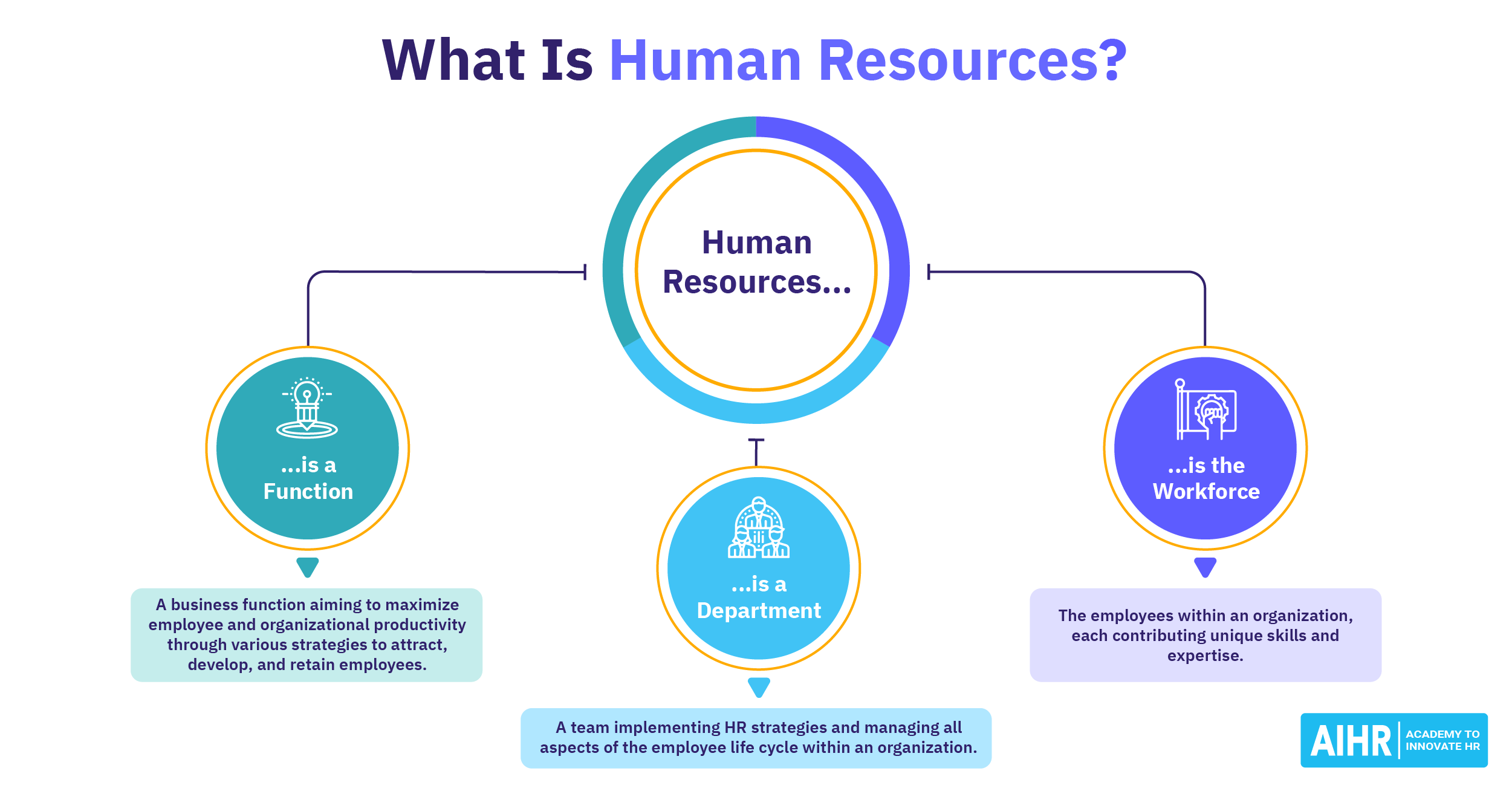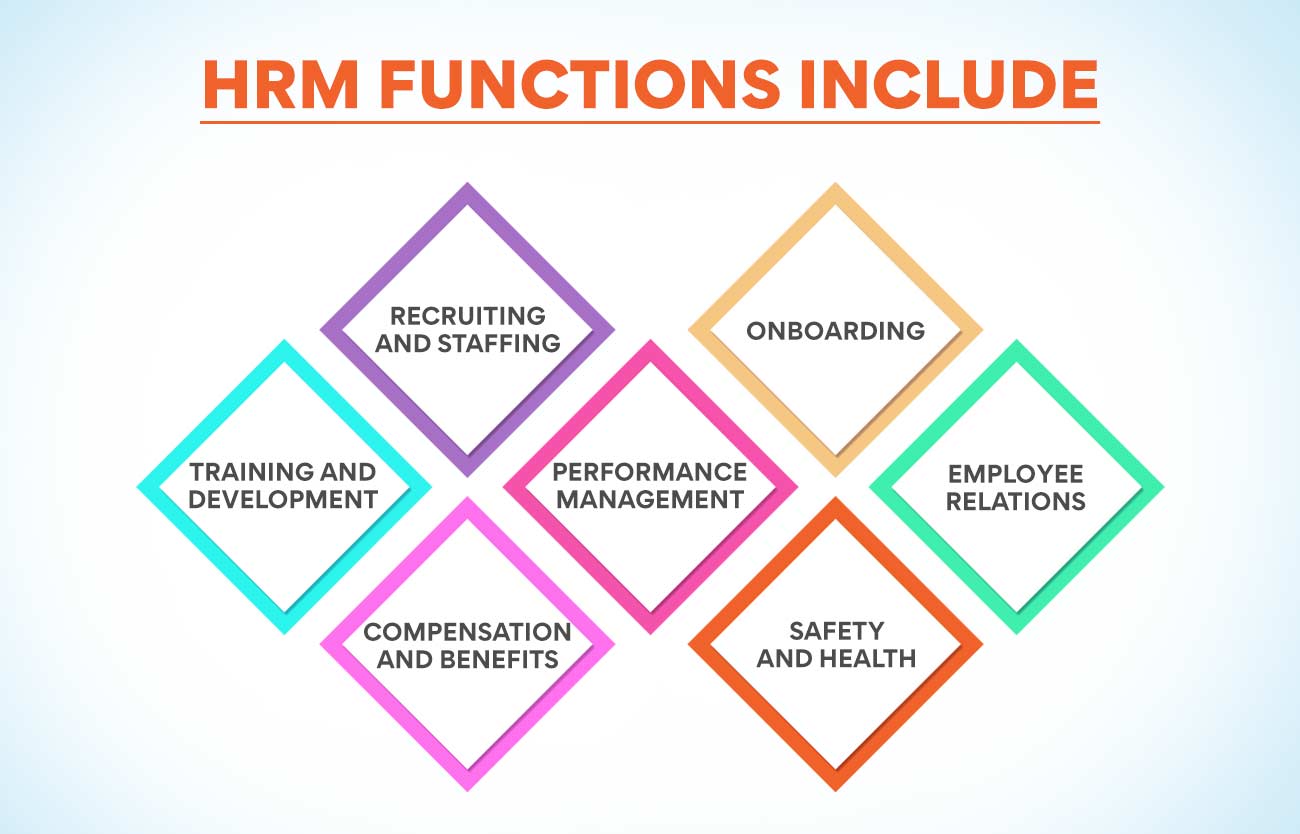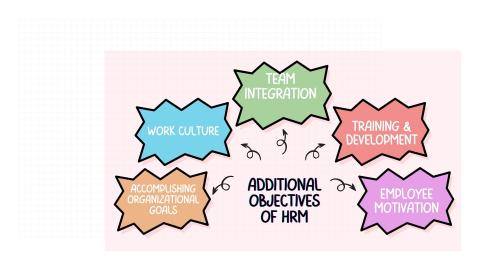
How can we help you today?
Registered Office
Infowan Technologies Pvt Ltd
Mumbai-401107. INDIA.
Contact Details
+91 98201 97205
+91 98201 26871
+91 98670 74415
support@infowan.net
info@infowan.net

Understanding what is the meaning of HR is no longer optional—it's essential for companies that want to thrive in today's fast-paced and competitive business environment. Whether you are an entrepreneur building a startup or a large enterprise managing thousands of employees, having a strong understanding of HR (Human Resources) can make or break your operations.
HR is more than a department—it is a system that connects people, processes, and productivity. From recruitment and payroll to training and compliance, the HR department ensures that a business runs smoothly from within. Implementing a robust payroll management system helps reduce errors and saves time.
Today, technology has transformed how HR works. With advanced platforms like InfowanHR, businesses can automate time-consuming processes like attendance tracking, salary computation, and employee performance management. But before diving into HR software solutions, it's important to understand the foundation: what is HR System, and why it matters for every business?

The question "what is the meaning of HR?" refers to understanding the purpose, role, and responsibilities of the Human Resources department within a company.
HR (Human Resources) is the function that manages everything related to people in an organization, including:
HR covers hiring, payroll, performance reviews, employee relations, training, policy enforcement, benefits, and much more. It ensures that a company complies with labor laws and creates a safe, engaging, and productive workplace.
When people ask "what is the meaning of HR in office", they often think only of recruitment or salaries. However, HR's impact is much wider. It includes defining workplace culture, supporting employees during conflicts, and developing systems that allow businesses to scale without chaos.
In essence, HR is the people engine of your company.
Understanding HR meaning in a company goes deeper than day-to-day tasks. In any organization, HR plays a strategic role in aligning human capital with the overall business vision. This includes not only hiring but also nurturing talent, shaping organizational culture, and optimizing team structures for better performance.
By knowing what is the meaning of HR, companies can build better workplaces that reduce turnover, improve morale, and increase long-term profitability.

When people say "HR meaning in office", they're referring to how HR operations are carried out in a day-to-day workplace environment. In an office, HR is responsible for tasks like processing leave requests, conducting onboarding sessions, addressing employee concerns, and running performance reviews.
Using biometric or GPS systems
Monthly salary computations
Helping new hires get set up
Conducting satisfaction surveys
With platforms like InfowanHR, many of these tasks can be automated, saving countless hours each month. But the core idea remains: understanding what is the meaning of HR in office helps clarify how people operations influence daily business performance.
If you're trying to understand the HR manager meaning, it refers to the leadership role within the HR department. The HR manager oversees people strategies, supervises HR teams, and ensures that organizational goals are met through proper workforce planning.
An HR manager plays a critical role in translating business goals into human-centered practices. When business owners understand what is the meaning of HR, especially at the managerial level, they can better align leadership decisions with employee needs.
The HR executive meaning refers to the operational role within the HR team. An HR executive is responsible for carrying out day-to-day HR tasks such as maintaining employee records, assisting in hiring, processing paperwork, and responding to queries.
Coordinating with candidates and hiring managers
Assisting with new hire documentation
Maintaining leave and attendance data
Preparing official letters and memos
While HR managers make strategic decisions, HR executives ensure those decisions are implemented properly. Understanding both roles helps clarify what is the meaning of HR across different levels of an organization.
In today's business world, HR has evolved to take on multiple critical functions. These functions not only support internal operations but also contribute directly to organizational growth and employee satisfaction.
Software like InfowanHR enables HR teams to handle these functions digitally, with accuracy and efficiency. When you fully grasp what is the meaning of HR, you understand its role as both an enabler and a protector of your business.
An efficient HR department is not just a cost center; it's a strategic asset. Understanding what is the meaning of HR helps leadership teams realize the real return on investment HR can provide.
Business Impact: Companies with strong HR practices see 3.5x higher revenue growth compared to peers (Deloitte HR Trends Report)
As businesses digitize, the concept of HR has expanded into new territories. Modern HR is no longer just about paperwork—it's about data, automation, and experience.
Replacing spreadsheets with secure, accessible platforms
Employee self-service via smartphones
Smart screening of candidates
Data-driven decision making
So, what is the meaning of HR today? It's not just about human resources—it's about managing your most important resource: people. HR has become a vital function that impacts every part of a business, from employee well-being to strategic growth.
Whether you are a company owner, HR professional, or someone trying to understand corporate structures, knowing what is the meaning of HR is the first step toward building better workplaces.
As technology continues to reshape the role of HR, tools like InfowanHR will empower teams to focus more on people and less on paperwork.
Switch to InfowanHR – India's trusted HRMS platform for smart businesses.
With features like GPS Attendance, Payroll Automation, Leave Management, and more—Infowan helps you focus on people, not paperwork. Request a Free Demo and discover how your HR team can work smarter today.
If you're researching options, check out our guides like best HR software in India , top HR software in India , and best payroll software India for comparisons and feature breakdowns.
Q1. What is the meaning of HR in simple terms?
HR, or Human Resources, is the department in a company responsible for managing everything related to employees—such as hiring, payroll, training, and compliance.
Q2. What is the meaning of HR in office settings?
In office settings, HR handles day-to-day operations like attendance, leave management, conflict resolution, onboarding, and employee support.
Q3. What is HR's role in a company?
HR aligns people with business goals. It recruits talent, manages employee records, ensures legal compliance, and drives organizational culture.
Q4. What is the difference between an HR manager and HR executive?
An HR manager focuses on strategy and leadership, while an HR executive handles operational tasks like documentation and employee support.
Q5. How does HR help business owners?
HR helps business owners by ensuring compliance, improving employee retention, and automating tasks like payroll and attendance tracking.
Q6. What software helps manage HR tasks?
HRMS platforms like InfowanHR help businesses automate key HR functions like attendance, payroll, onboarding, and performance reviews.
Q7. Why is HR important in a small business?
HR ensures even small businesses remain compliant, organized, and employee-friendly—reducing risks and boosting growth potential.
Q8. How is modern HR different from traditional HR?
Modern HR uses digital tools for automation, data tracking, and employee engagement, while traditional HR relied heavily on manual processes.
Best HR Software in India | Top HR Software in India | What is an HR System? | Online HR Management Software | Best Payroll Software in India | Employee Payroll Management System | What is a Payroll System? | What is Payroll? | What is HRMS? | What is HR Management? | 7 Roles of HRM | What is Human Resources? | Top HR Interview Questions | What is HR? | HR Analytics Explained | What is HR Compliance? | Human Resource Management Guide | Best HRMS System | HR Management System Software | HR Software for Small Business | Best HRMS Employee Self Service | What are the Functions of HRM | Functions of HRM | Human Resource Accounting | Difference Between HRM and HRD | Best HRMS Software in India | Top HRMS Software in India | HRMS Companies in India | What is 3rd party payroll | Payroll Software list | What is payroll management in HR